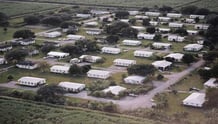On Friday, the United States announced the imposition of sanctions on the head of the “Popular Mobilization Forces” in Iraq, Faleh Al-Fayyad, for “his association with human rights violations.”
The US Treasury Department said, in a statement, that it had imposed sanctions on Al-Fayyad for his links to human rights violations.
She explained that the sanctions include the confiscation of all his property and personal interests in the United States, and the prohibition of any entities that own 50% of their stake, or that he and others own directly or indirectly.
The ministry indicated that the sanctions against Al-Fayyad come in the implementation of Executive Order No. 13818, which provides for the punishment of human rights violators around the world and those who publish corruption.
It stated, “The pro-Iranian militia of the crowd attacked the participants in the Iraqi demonstrations in October 2019, which came out in opposition to corruption, unemployment, economic recession, poor public services, and Iran’s interference in Iraqi internal affairs.”
And she continued, “The pro-Iranian elements in the Popular Mobilization Forces continue to wage an assassination campaign against political activists in Iraq who call for free and fair elections, respect for human rights, and the appointment of a clean government.”
The statement quoted US Treasury Secretary Stephen Mnuchin as saying, “Politicians and allies with Iran, such as Faleh Al-Fayyad, launched a violent campaign against Iraqi democracy and civil society, by supervising and managing the killing of peaceful protesters.”
Fayyad is one of the prominent Shiite politicians in Iraq, and he used to hold the position of National Security Adviser in addition to his current position, but Prime Minister Mustafa Al-Kazemi removed him from his post months ago.
The Popular Mobilization Forces were formed to fight the terrorist “ISIS” when it invaded northern and western Iraq in 2014 and fought battles against the organization alongside the army forces.
However, the crowd, especially its factions close to Iran, are facing charges of committing violations against the Sunnis in addition to suppressing the popular protests that began in 2019 against the ruling elite accused of corruption and dependency abroad.














